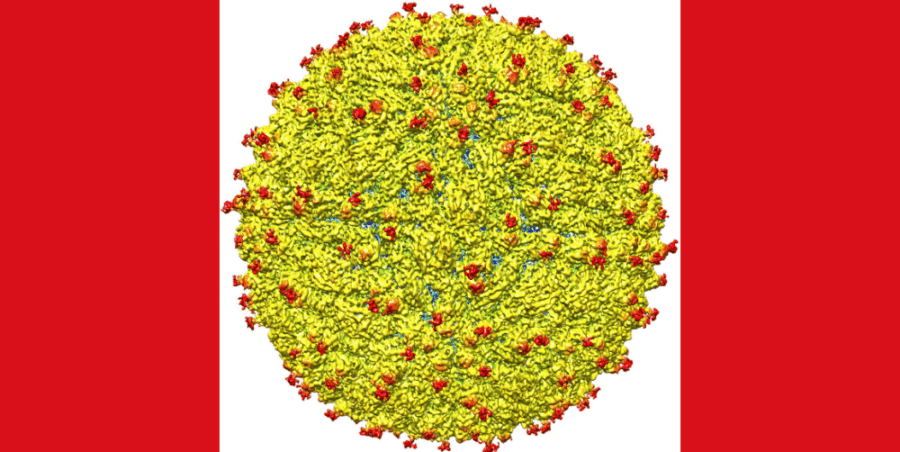The Zika virus, which made headlines in 2016 following an outbreak in South America, is transmitted by mosquitos and can cause serious birth defects and neurological problems. Researchers are searching for antiviral treatments or effective vaccines to address this global health threat, but there are currently no approved treatments.
Now, Stanford researchers are taking a different approach — investigating the cellular factors of humans that are essential for Zika to propagate. One of those factors is a type of protein called Hsp70, which helps proteins fold correctly and performs a wide range of housekeeping and quality-control functions in cells.
Based on a series of experiments in mosquito and human cells, the Stanford study found that certain Hsp70 proteins are required in multiple steps of the Zika virus’ lifecycle. By blocking Hsp70 with an Hsp70 inhibitor drug, the researchers were able to prevent virus replication, as recently reported in Cell Reports.
One advantage of targeting the human host protein to thwart Zika is that it is less likely to promote drug resistance, Judith Frydman, PhD, senior author of the paper and a professor of genetics and of biology at Stanford, told me.
“The emergence of drug-resistant variants is a major obstacle for the development of antiviral therapies,” she continued. “We hypothesize that because Hsp70 is required for several different steps in the Zika virus cycle, it would be difficult for Zika to acquire enough mutations to develop resistance to the Hsp70 inhibitors. This opens the way to both therapeutic and prophylactic use of these drugs for short courses of treatment without losing effectiveness due to resistance.”
In addition, the team found that the Hsp70 inhibitors showed negligible toxicity to the host cells at the concentrations needed to fully block virus production. They demonstrated this lack of toxicity in both human cells and mice.
“The virus has a much higher demand for Hsp70 than the host cellular processes,” Frydman said. “We can exploit the viral ‘addiction’ to Hsp70 for treatment to prevent the virus from producing the proteins it needs to replicate and infect cells. But most importantly, we show Hsp70 inhibitors can be administered to animals at therapeutically effective doses. To my knowledge, this is the first drug that actually works for Zika-infected animals, protecting them from lethal infection and disease symptoms.”
The researchers believe their new approach could serve to create broad-spectrum antivirals that work against other existing and emerging viruses. In fact, this class of drugs could also treat other insect-borne viruses including dengue virus and yellow fever, Frydman said.
“Our findings provide new strategies to develop a novel class of antivirals that will not be rendered ineffective by the emergence of drug resistance,” Frydman said. “This unique property of targeting host factors used for viral protein folding therapeutically may close a fundamental gap in antiviral drug development.”


